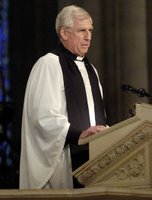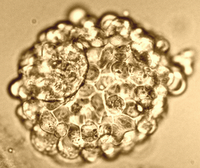Tell the Truth or Trump
 In The Tragedy of Pudd’n’head Wilson, Mark Twain inserted observations on humanity through an almanac written by the title character. Of these, the one I remember best comes from the first chapter: “Tell the truth or trump — but get the trick.” Twain’s novel deals with crime, politics, family relationships, and human pride. The Tragedy shows how people swerve from the truth whenever fear, vanity, or desire for gain triumph over morality. The whole story becomes a sort of game, wherein numerous players cheat (trumping the truth with lies in order to cover theft, murder, or shameful pasts) in order to win.
In The Tragedy of Pudd’n’head Wilson, Mark Twain inserted observations on humanity through an almanac written by the title character. Of these, the one I remember best comes from the first chapter: “Tell the truth or trump — but get the trick.” Twain’s novel deals with crime, politics, family relationships, and human pride. The Tragedy shows how people swerve from the truth whenever fear, vanity, or desire for gain triumph over morality. The whole story becomes a sort of game, wherein numerous players cheat (trumping the truth with lies in order to cover theft, murder, or shameful pasts) in order to win.In my mind, ethical opposition to Missouri Amendment 2 is bound by the truth while proponents continually insert “trumps” from many other decks. The opposition has played some powerful cards. How will we respond in this final week of campaigning by “speaking the truth in love” (Ephesians 4:15)?
The other side has all the influence that thirty million dollars will buy. Led by massive donations from the Stowers and their related charities and businesses, they purchase huge blocks of advertising. They call upon a respected former Senator to speak for them and import entertainers to play upon our heart strings. Paid commercials parade the horrors of inherited disease and violent injuries before a caring electorate. Because of this huge financial inequity, if “Yes on 2” backers have their way, money trumps the truth.
We all know people with Alzheimer’s, Parkinson’s, MS, MD, spinal cord injury, and other permanently disabling afflictions. The amendment waves hope for cures before our eyes. Those who crafted advertize Amendment 2 promise a panacea. The invite us to give Missouri biotech companies and state universities billions of dollars and years of time to invest in turning embryonic stem cells into medical miracles. If we or one of our loved ones suffers an ailment that has no cure, don’t we want to believe that a cure will be found? Who remains unmoved when watching the Michael J. Fox ads? Yet if sympathy for sufferers outweighs scientific evidence and Scriptural testimony, emotionalism trumps the truth.
 Finally, supporters of Two practice subtle and direct deceit. When we closely examine the issue, we see that possible cures probably won’t happen for some time to come. So far, investigative medicine based upon Embryonic Stem Cell Research (ESCR) has yielded nothing. Yet supporters imply that successful research is just around the corner. In order to quash religious and moral objections, they say that the amendment is a safeguard against cloning human life. To lull pro-life Missourians to sleep, they have Mr. Danforth trumpet his own “pro-life” record while failing to clearly state that Amendment Two provides for the creation and destruction of millions of human embryos — people at the earliest stages of their lives.
Finally, supporters of Two practice subtle and direct deceit. When we closely examine the issue, we see that possible cures probably won’t happen for some time to come. So far, investigative medicine based upon Embryonic Stem Cell Research (ESCR) has yielded nothing. Yet supporters imply that successful research is just around the corner. In order to quash religious and moral objections, they say that the amendment is a safeguard against cloning human life. To lull pro-life Missourians to sleep, they have Mr. Danforth trumpet his own “pro-life” record while failing to clearly state that Amendment Two provides for the creation and destruction of millions of human embryos — people at the earliest stages of their lives.Since supporters didn’t like current scientific definitions of cloning, they invented new ones and inserted these novelties into the text of our proposed constitutional amendment. Those who oppose them are branded “anti-science.” Call it word games or call it lying, if Amendment Two succeeds, then falsehood trumps the truth.
Some ignore the truth because of pity for sufferers. While this is shortsighted and wrong, we Christians understand and gently deal those whose ethical judgment is clouded by compassion. Others, especially those suffering or dreading the onset of crippling disease or injury show how they fear suffering and death more than they honor the truth by treating all human life as a sacred gift from God. While understandable, these fears expose sinful mankind’s collective self-centeredness. Seeking earthly strengthening, they refuse to allow the Lord’s power to be made perfect in their own weaknesses (see 2 Corinthians 12:9). Worst among all supporters, in my opinion, are those ignoring the truth because this amendment will be a tremendous cash cow for private biotech corporations and university research labs throughout the state Missouri.
Those who know (or even suspect) that embryos are living human beings sin against conscience and God when they practice or benefit from ESCR. Those who allow fears or finances to replace Scripture and good science risk going beyond even the consequences Paul describes in Romans 1. Embryonic stem cell researchers create or collect tiny human bodies, then destroy them. They dishonor their own bodies (1:24) by using them to carry out their life-ending experiments. Trying to make themselves “like God, (Genesis 3:5)” they generate and then destroy thousands of tiny, defenseless human beings. Certain that they know better than God, they worship and serve “the creature rather than the Creator,” exchanging “the truth about God for a lie. (Romans 1:25)”
Scripture and basic ethics call us to be honest. Among many the many details surrounding Amendment 2, there are a few simple truths that the other side misstates or ignores. First of all, opponents of the Missouri Stem Cell Initiative are not “anti-science.” We support good science, such as Adult Stem Cell Research, that doesn’t destroy embryonic humans and which already shows great promise. Second, we know that the Lord “is not God of the dead, but of the living. (Matthew 22:32)” Since His divine interest extends even into the womb, He thus must consider the unborn to be living (see Psalm 139:13; Jeremiah 1:5).
 Third, when “the Word became flesh and dwelt among us, (John 1:14)” He began human life as an embryo and passed through the subsequent stages of human development. He was fully human fetus, fully human infant, fully human toddler, fully human child, fully human adolescent, and fully human adult. In His ascended glory, He remains fully human. At no stage in the womb was He subhuman, unhuman, or pre-human. Neither is any other human zygote, blastocyst, embryo, or fetus anything other than fully human.
Third, when “the Word became flesh and dwelt among us, (John 1:14)” He began human life as an embryo and passed through the subsequent stages of human development. He was fully human fetus, fully human infant, fully human toddler, fully human child, fully human adolescent, and fully human adult. In His ascended glory, He remains fully human. At no stage in the womb was He subhuman, unhuman, or pre-human. Neither is any other human zygote, blastocyst, embryo, or fetus anything other than fully human.Fourth, while the Amendment says that it bans cloning, it actually enshrines Somatic Cell Nuclear Transfer (SCNT) in the state constitution. The United States’ National Institutes of Health (NIH) say of it, “SCNT is the scientific term for cloning. SCNT can be used for therapeutic or reproductive purposes, but the initial stage that combines an enucleated egg and a somatic cell nucleus is the same.” Either the NIH or Amendment 2 must be lying, because their definitions flatly contradict.
Finally, while we oppose ending one life in order to extend or enhance another, we who are truly “pro-life” are also “pro-people.” We are not unfeeling or unloving. Within the bounds of God’s Word and our abilities, we seek to love and serve those in need. We support ethical scientific research. We bring comfort to the suffering. We listen to, talk with, and pray for those in need.
In closing I ask you to remember that we are children of a “hands-on” God. During the Creation, He dug into the earth’s soil in order to form Adam (Genesis 2:7). He reached into the flesh of this first man and pulled out the material from which He formed Eve (2:21-22).
 As a Redeemer God, He rescued Israel from Egypt “with a mighty hand and an outstretched arm. (Deuteronomy 26:8)” He reaches into women’s wombs in order to knit together each growing and developing child (Psalm 139:13-16). Assuming human flesh through His Incarnation, the Son healed many by the mighty works of His hands (Mark 6:2). He then stretched out His hands and died for us (Matthew 27; Mark 15; Luke 23; John 19).
As a Redeemer God, He rescued Israel from Egypt “with a mighty hand and an outstretched arm. (Deuteronomy 26:8)” He reaches into women’s wombs in order to knit together each growing and developing child (Psalm 139:13-16). Assuming human flesh through His Incarnation, the Son healed many by the mighty works of His hands (Mark 6:2). He then stretched out His hands and died for us (Matthew 27; Mark 15; Luke 23; John 19).As His Father’s “Right Hand Man, (Acts 5:31)” the Son continues to guide us through this life. Likewise, the Father remains hands-on in a fallen world. Occasionally He directly works a miraculous intervention. More often, by His Holy Spirit, He acts through the hands of His dear people, moving us to reach out in our various vocations to love our neighbor as ourselves. He leads us to follow the apostolic example, taking up “the weapons of righteousness for the right hand and for the left (1 Corinthians 6:7)” and being His caring, sharing, giving hands on earth for all in need.
Please join me in praying that God would help us “take the trick” in this election. Let your desire be for life to overcome lies and truth to conquer feelings, finances, and falsehoods. Also, ask God to keep the “trump cards” of violence and deceit out of the hearts and hands of pro-life voters and activists, that we might act as we believe. May He use our hands and hearts to take up pen, pencil, keyboard, ballot, purse, wallet, checkbook and any other godly means to protect human life at all its stages.
Technorati Tags: embryonic stem cells | cloning | Missouri | Amendment 2 | Amendment Two | Lutheran | Christian | vocation | pro-life | government | church and state | Embryonic Stem Cell Research | ESCR | church and state | Adult Stem Cell Research | ASCR | Somatic Cell Nuclear Transfer | SCNT | science | resources | Stowers Institute | John Danforth | Michael J. Fox | Mark Twain | tell the truth or trump





















